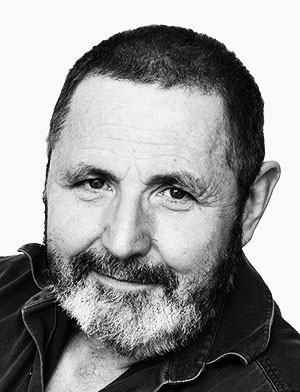
Richard Mills on 'Impromptu, After Schubert'
Reflections on the renowned Austrian composer and how his works inspired the creation of 'Impromptu, After Schubert'.

Richard Mills is one of Australia's most sought after composers and music directors. We talk with Richard about his work, which reflects on the renowned Austrian composer Franz Schubert (1797–1828) and is being performed with the Tasmanian Symphony Orchestra this September.
On Impromptu, after Schubert Richard says:
It is a meditation in response to two fragments from Schubert songs, ‘Ariette’ and ‘Auf dem Wasser zu singen’, the first in G major, the second in A-flat minor. These fragments are the exclusive provenance of an off-stage piano, the quotations call from times past through time. The orchestra both responds to and develops the song fragments, taking some of the classic fingerprints of Schubert: the expressive alternation of major and minor, the lilting rhythms and the harmonic pungency. There are also subliminal references to the Symphony No.8 and Winterreise as the music unfolds.
‘Sehnsucht’, the notion of longing or desire, which is present in both song texts, is a motivating force in the development of the orchestra’s music, which after each paragraph gives way to the unchanging simplicity of the Schubert citations, which extend the hand of friendship through time to us today. The final stanza of ‘Auf dem Wasser zu singen’ encapsulates the sentiments which the composer as poet could well invoke as a prelude to this little piece:
Alas, with dewy wings
Time vanishes from me on the rocking waves.
Tomorrow let time again vanish with shimmering wings,
As it did yesterday and today,
Until, on higher, more radiant wings, I myself vanish from the flux of time.
What are the origins of the piece?
Impromptu, After Schubert was originally a 2014 TSO Commission for a concert including Schubert, conducted by Marko Letonja [TSO Chief Conductor and Artistic Director]. Simon Rogers [TSO Director of Artistic Planning] wanted an opening piece that made some reflection on Schubert. This isn’t something I do often but have now composed a piece which reflects on another work on two occasions for the TSO.
You’ve had a long association with the Tasmanian Symphony Orchestra (TSO), when did you first begin working with the orchestra and why?
I certainly have – in fact 2018 marks 40 years since I first composed for and conducted the TSO (in 1978). I was TSO Principal Percussionist from 1976-1977. The TSO holds a very special place in my heart, during my time working with the orchestra I wrote my first real music, which the TSO then performed.
I’m very proud of the TSO, what it has achieved in quality of performance under Marko Letonja, as well what it has achieved internationally with the Australian Music Program is truly remarkable.
In fact Tasmania is, in many ways, my spiritual home. The quality of light, the sense of place and sense of history, along with the wild beauty of the state, is a great inspiration for me.
You have also been closely involved with the Melbourne Recital Centre, what is about this venue that makes it hold such a unique position in Melbourne’s cultural landscape?
I was a very early Board Member of the Melbourne Recital Centre, which is such a special place in Melbourne as it enables music to exist in many forms. Both halls are beautiful spaces, aesthetically and acoustically, and there is such a diverse range of activity throughout the centre. In Melbourne, the Melbourne Recital Centre has provided a tremendous boost for all kinds of music. It is ideal for the upcoming TSO performance, and the next day the TSO will join my other organisation Victorian Opera for a concert performance of Bellini’s The Capulets and The Montagues.
The Tasmanian Symphony Orchestra performs Richard Mills' 'Impromptu, after Schubert' plus works by Strauss and Schubert in Elisabeth Murdoch Hall on Thursday 13 September.
You might also be interested in
-
-
-
Explore the program notes in advance

